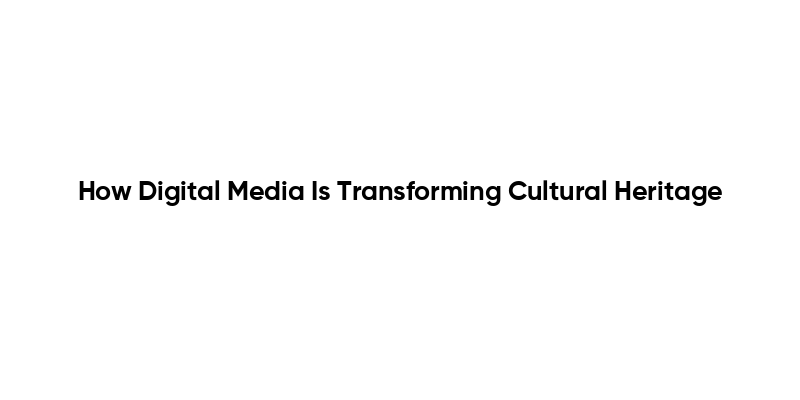In an era where the intersection of Humanities and Artificial Intelligence is increasingly relevant, questions arise about the future of liberal arts amidst rapid technological advancements. The survival of humanities often hinges upon its ability to adapt and respond to the transformative impact of AI on education. As artificial intelligence reshapes how we engage with knowledge, the role of humanities in technology becomes essential in understanding the human experience versus AI. The challenge lies not only in preserving traditional disciplines but also in enhancing them through innovative dialogues between humanists and technologists. Embracing this synergy can revitalize academia, ensuring that the essence of what it means to be human is not overshadowed by machines.
As we delve into the dynamics between the study of human culture and the rise of machine intelligence, we encounter a profound inquiry into the essence of our existence and societal values. This discourse invites us to reflect on the effects of robotic technology on educational frameworks and the significance of arts in shaping contemporary knowledge. Examining how humanistic perspectives can coexist and enrich technological landscapes provides insight into the ongoing dialogue about consciousness and creativity. By navigating the nuanced relationship between the humanities and cutting-edge technologies, we can illuminate pathways that highlight the unique attributes of human thought and spirit. Ultimately, the exploration of this complex interplay promises to redefine our understanding of scholarship in an increasingly automated world.
The Survival of Humanities in an AI-Driven World
As artificial intelligence continues to evolve at an unprecedented pace, the very survival of the humanities is brought into question. The traditional disciplines that emphasize human experiences, critical thinking, and ethical considerations are now challenged by a wave of technological advancement that seems to overshadow their relevance. However, rather than viewing this as an end, it can be seen as an opportunity for the humanities to adapt and reaffirm their critical role in society. This adaptation is crucial; it allows the disciplines to engage with AI technology rather than retreat from it, maintaining their significance in understanding the complexities of the human condition.
Engaging with AI does not mean that the humanities must compromise their foundational principles. On the contrary, the realms of literature, philosophy, and history can use AI as a tool to enhance their explorations. By integrating AI into curricula, educators can cultivate a new generation of scholars who are not only fluent in traditional humanistic thought but also adept at leveraging modern technology to further their inquiries. This fusion of skills is not merely advantageous; it is essential for the humanities to retain relevance in an era increasingly dominated by technological narratives.
The Impact of AI on Education and the Humanities
The intersection of artificial intelligence and education presents both challenges and opportunities for the humanities. As educational institutions grapple with the implications of AI tools like ChatGPT, the risk of relegating humanities courses to mere rote learning becomes evident. However, this moment also urges a rethinking of pedagogical strategies aimed at integrating AI in a way that enriches the learning experience rather than stifles it. For example, students can be encouraged to critically analyze AI-generated content, evaluating its implications and understanding the nuances that a machine-led analysis might miss, thus preserving the depth of human inquiry.
Moreover, as AI becomes a fixture in educational environments, it can catalyze a revival of interest in the humanities by highlighting the uniqueness of human perspectives. The humanities’ capacity to delve into moral philosophy, historical narratives, and artistic expression serves to remind students and society alike that while AI can mimic human outputs, it fundamentally lacks the intrinsic human qualities of empathy and lived experience. This differentiation is vital, as it shapes the discourse surrounding the value of a liberal arts education in the context of an increasingly automated future.
Human Experience vs AI: Redefining Values
In the evolving landscape shaped by artificial intelligence, the fundamental tension between human experience and AI-generated interactions becomes increasingly pronounced. Students, when confronted with AI’s ability to generate responses and solutions, often question the authenticity of their own human experiences. This competition for validity prompts critical discussions about the essence of creativity, emotional depth, and moral reasoning—areas in which AI still lags. By fostering an environment that encourages exploration of these contrasts, educators can guide students to appreciate and articulate their own unique perspectives, grounding them in the rich traditions of the humanities.
Navigating this terrain requires a shift away from mere technological proficiency. The humanities are not just about knowledge accumulation; they are about understanding and interpreting the human experience in the face of challenges, including those posed by AI. This era presents a unique opportunity for students to critically investigate what it means to be human in relation to artificial constructs. By emphasizing critical reflection and ethical reasoning, the humanities can reclaim their vital role, fostering a dialogue that acknowledges technology’s benefits while highlighting the irreplaceable nature of human insight.
The Role of Humanities in Technology Integration
As technology becomes more interwoven with daily life, the role of the humanities in the tech sector is increasingly critical. Humanities scholars bring essential skills to the table, such as storytelling, ethical reasoning, and critical analysis, which can guide the responsible development and implementation of technology. By collaborating with technologists, humanists can ensure that the applications of AI consider human dignity, societal impact, and cultural values. This partnership not only promotes ethical technology but also enhances the user experience by prioritizing human-centric design.
Furthermore, immersing humanities students in technology-related projects can provide a rich context for developing persuasive communication skills and ethical frameworks. For instance, integrating AI principles into humanities courses encourages students to confront the moral implications of their decisions and actions in relation to technology. As such, the humanities do not exist in opposition to technology; instead, they offer vital insights that can lead to a more thoughtful and informed technological landscape.
Fostering a Future for Liberal Arts in a Tech-Dominated Epoch
The future of liberal arts education is inextricably linked to the rise of artificial intelligence, prompting institutions to rethink how they position these fields in an increasingly tech-dominated environment. Rather than viewing the rise of AI as a threat, academics and administrators must embrace the challenge to innovate the liberal arts curriculum. Integrating interdisciplinary approaches that blend technology with classic humanist studies will not only keep liberal arts relevant but will also expand the intellectual toolkit of graduates, preparing them for an array of modern careers.
This intersection of technology and liberal arts inspires a broader public conversation about the importance of a well-rounded education. As society grapples with the implications of AI, the humanities can take a leading role in shaping ethical discourses and advocating for inclusive narratives that reflect diverse human experiences. By embracing this dynamic, the humanities can ensure their place not just at the heart of academia, but also in policy-making and public discourse surrounding technology.
Reassessing Knowledge in the Age of A.I.
In a world where AI can produce vast amounts of content at lightning speed, the humanities are called upon to reassess their definition of knowledge and expertise. The ability to critically evaluate sources, engage with cultural texts, and understand the complexities of social dynamics—these are the hallmarks of a humanist education. As AI-generated material proliferates, the challenge is to not only discern what constitutes valuable knowledge but also to instill in students the skills needed to navigate this complexity. Through a rigorous engagement with traditional texts alongside modern technological outputs, students can develop a nuanced understanding of knowledge.
Moreover, this reassessment invites a vital conversation about the purpose of education itself. Are we preparing students merely to consume information, or are we equipping them to challenge, critique, and innovate based on their insights? The humanities’ emphasis on inquiry, analysis, and synthesis allows for a rich exploration of these questions, fostering graduates who are not just knowledgeable but also adaptable in a rapidly evolving job market. Thus, the rise of AI offers a unique opportunity to reaffirm the relevance of the humanities in equipping students for future challenges.
Engaging Students with AI: A New Pedagogical Approach
As the presence of AI tools grows within educational frameworks, it is crucial to adopt new pedagogical approaches that engage students meaningfully while utilizing these technological advancements. Encouraging students to interact directly with AI systems, like ChatGPT, to explore complex themes within the humanities can ignite their interest and creativity. Assigning projects where students analyze the responses generated by AI and juxtapose them with human-generated content allows for insightful discussions about the nature of intelligence—both artificial and human. This method not only fosters critical thinking but also enhances students’ technological literacy.
In this new landscape, educators also have the responsibility to address the ethical implications of AI in learning. By incorporating discussions on academic integrity, the potential biases embedded within AI, and the importance of original thought, educators can prepare students to become conscientious users of technology. The dialogue surrounding AI’s role in education should not only involve its capabilities but also its limitations, urging students to value the unique elements of human experience and creativity. Therefore, embracing AI within a thoughtful and structured pedagogical framework allows for a richer, more nuanced understanding of both technology and the humanities.
The Future of Humanities: A Cultural Renaissance
Amidst the rapid evolution of artificial intelligence, there lies the potential for a cultural renaissance centered around the humanities. This revival is not about resisting technological advancements but rather about integrating them to enhance understanding of human experiences. As AI continues to shape societal narratives, the humanities stand as a beacon for critical examination, ethical discourse, and creative expression. Engaging with technology allows scholars and students alike to explore profound questions about identity, community, and morality, ensuring that these essential discussions remain at the forefront of cultural conversations.
Moreover, this cultural renaissance calls for a revaluation of the arts and humanities within the broader societal framework. By actively participating in the dialogue about technology’s role in shaping future societies, humanities scholars can ensure that human narratives are not lost amidst machine-led narratives. This integration could foster innovative collaborations between artists, philosophers, technologists, and educators, ultimately cultivating a more holistic approach to understanding our collective future. In doing so, the humanities can emerge not just as survivors in an AI-driven world, but as leaders in redefining the essence of what it means to be human.
Frequently Asked Questions
What is the survival of the humanities in the age of artificial intelligence?
The survival of the humanities in the age of artificial intelligence is crucial, as it emphasizes understanding the human experience amidst technological advancements. While AI replicates information processing, humanities provide depth by exploring meaning, ethics, and the essence of being human, ensuring that our cultural identity is preserved.
How does artificial intelligence impact education in the humanities?
Artificial intelligence impacts education in the humanities by offering new tools for engagement and exploration of complex ideas. AI can assist students in analyzing texts and enhancing their understanding of cultural contexts, thereby enriching their educational experience while prompting a critical dialogue on the intersection between technology and humanistic inquiry.
What role do the humanities play in the development of technology and artificial intelligence?
The humanities play a vital role in the development of technology and artificial intelligence by providing critical perspectives on ethical implications and societal impacts. By infusing technological advancement with humanistic values, we ensure that innovation aligns with the broader questions of meaning and purpose in human society.
How does the human experience contrast with artificial intelligence?
The human experience contrasts with artificial intelligence primarily in its depth of emotional understanding and subjective interpretation of life. While AI can mimic certain cognitive abilities, it lacks true consciousness and experiential insight, making the exploration of human creativity, emotion, and spirituality essential areas where humanities flourish.
What is the future of liberal arts in a world dominated by artificial intelligence?
The future of liberal arts in a world dominated by artificial intelligence is vibrant and essential. As AI continues to evolve, the liberal arts will emphasize critical thinking, creativity, and ethical discernment, equipping individuals to navigate complex, tech-driven societies and fostering a deeper appreciation for what it means to be human.
| Key Points |
|---|
| Significant cuts to federal grant funding under the Trump Administration are alarming for universities. |
| The university’s role has evolved from clerical origins to entrepreneurial research and development. |
| Most students are hesitant or fearful to engage with A.I. tools due to academic penalties. |
| Ignoring A.I.’s implications represents a significant distraction from broader intellectual progress. |
| Thought-provoking dialogues with A.I. helped students explore deep philosophical questions about intelligence and existence. |
| There is anxiety about A.I.’s potential, yet humans have unique consciousness and self-awareness. |
| The humanities must redefine their role to focus on the exploration of human experience in the A.I. era. |
Summary
Humanities and Artificial Intelligence challenge our understanding of knowledge and existence in profound ways. As we navigate an era increasingly dominated by technological advancements like A.I., the humanities can offer invaluable insights into the essence of what it means to be human. This intersection of disciplines not only enriches academic discourse but also provides frameworks for reflecting on our shared human experience in a digital landscape. Embracing the opportunities presented by A.I. while grounding ourselves in the exploration of humanity’s depth is essential for redefining our cultural identity.



